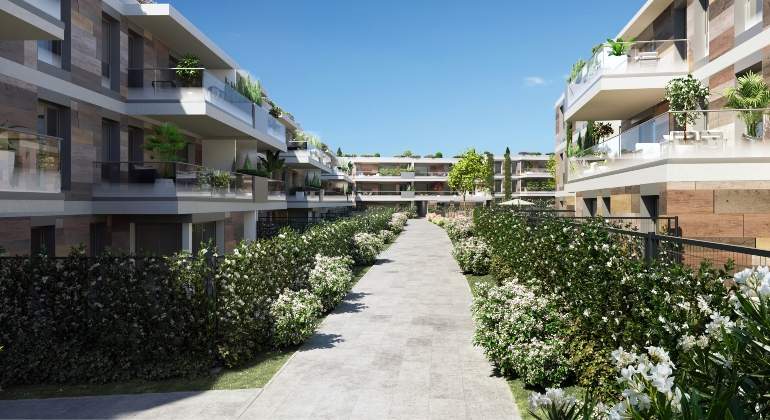The planet cries out for sustainable housing, let’s give it an answer. Tribuna de José María G. Romojaro, director of Architecture and sustainability of Aedas Homes.
June 5 is World Environment Day. Or what is the same, it is the outstanding day to awaken the global social conscience and demand attention for the care and respect of the environment. And here the building sector has a lot to say.
The data is illuminating: construction is responsible for 36% of energy consumption and 39% of CO2 emissions in the world . In Spain it generates between 30% and 35% of the carbon footprint and produces around 30% of total waste.
Faced with this harmful panorama, Aedas Homes proposes design criteria for the homes of the future with initiatives that enhance the sustainability of promotions, including the need to get a vegetation management report, from the manufacture of their materials, the construction of the building, its maintenance, its use, and even its demolition at the end of its useful life. 83% of the homes we delivered last year (about 2,000) had strong sustainability credentials, such as the international BREEAM certificate or the Aedas Homes Green Book , which includes our own Ecoliving sustainability seal .
We have recently approved our ESG 2021/23 Strategic Plan which, being aligned with the UN Sustainable Development Goals (SDGs), is fundamentally a company’s commitment to the environment and a roadmap with a very clear goal, achieve full decarbonisation of the sector.
We have acquired the firm intention of carrying out a policy against climate change with objectives such as that 60% of our promotions have energy certification ‘A’ as of 2023 and that 100% are built based on our Green Book or a external sustainability certification standard . We have set the goal of neutralizing up to 50% of greenhouse gas emissions in our activity by 2030.
But, if we really want to counteract this impact, we have to start by changing the conception of a work and industrializing the construction systems of our promotions following circular economy criteria.
Industrialized homes reduce CO2 emissions in their use by 30%
Industrialized homes represent a 60% reduction in carbon dioxide emissions at the time of construction and 30% in its use , less water consumption in manufacturing and maintenance, a high recycling and reuse of its materials, a minimum production of waste or the reduction from 40% to 75% of energy for air conditioning.
At Aedas Homes we are clear that the future of the planet depends on our projects today, which calls for sustainable housing. Let’s give you an answer.



 Bitcoin
Bitcoin  Ethereum
Ethereum  Tether
Tether  XRP
XRP  Solana
Solana  USDC
USDC  TRON
TRON  Cardano
Cardano  Lido Staked Ether
Lido Staked Ether  Avalanche
Avalanche  Toncoin
Toncoin